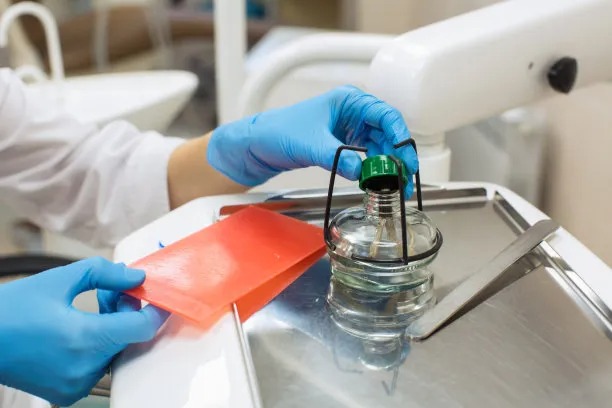Summary: Root canal treatment is a crucial dental procedure aimed at saving damaged or infected teeth. To ensure its success and promote optimal recovery, it is vital to follow essential precautions. This article discusses four key areas: patient preparation, infection control measures, post-treatment care, and the importance of professional expertise. By adhering to these guidelines, both dentists and patients can foster a smooth and effective treatment process, ultimately leading to improved dental health and recovery. Understanding these components is essential for anyone considering or undergoing root canal therapy.
1. Patient Preparation for Root Canal Treatment

Before embarking on a root canal treatment, thorough patient preparation plays a vital role. Initially, the dentist should conduct a comprehensive dental examination, utilizing X-rays to assess the extent of the infection and the overall state of the tooth. This diagnostic step is crucial in formulating an effective treatment plan tailored to the patients needs.
Patients should be adequately informed about the procedure, including its benefits, risks, and expected outcomes. Clear communication helps alleviate anxiety, enabling patients to be mentally prepared. This informed consent process should also include discussions about any medications the patient is currently taking or any medical conditions that might affect the treatment.
Additionally, patients should ensure they are in optimal health before the treatment. Addressing any underlying health issues, such as uncontrolled diabetes or blood pressure, is essential for achieving the best possible outcome. A well-prepared patient is more likely to cooperate and follow post-treatment instructions, leading to a smoother recovery process.
2. Importance of Infection Control Measures
Infection control is paramount during root canal treatment to prevent further complications. The dental clinic must adhere to strict hygiene protocols, including the sterilization of instruments and the use of personal protective equipment (PPE). These measures minimize the risk of introducing new bacteria into the treated area, contributing to effective healing.
Furthermore, practitioners should utilize rubber dams to isolate the tooth being treated effectively. This isolation prevents saliva contamination, which can negatively affect the treatments success. By creating a sterile working environment, the dentist is better equipped to eliminate the infected pulp and disinfect the root canal system.
Additionally, following the treatment, dentists may prescribe antibiotics to combat any residual infection. This proactive approach is crucial in ensuring that the treated tooth does not become reinfected, reinforcing the importance of infection control throughout the entire procedure.
3. Post-Treatment Care for Optimal Recovery
Post-treatment care is a critical aspect of ensuring effective recovery after a root canal. Patients should be provided with clear instructions regarding pain management, which often includes over-the-counter pain relievers or prescribed medications. Understanding how to manage post-operative discomfort is essential for patient satisfaction and compliance.
Moreover, patients need to be educated about signs of potential complications, such as increased swelling, persistent pain, or discharge. Recognizing these symptoms early allows for timely intervention, preventing further complications or the need for additional treatments.
Maintaining proper oral hygiene practices is equally important during the recovery period. Patients should be advised to continue brushing and flossing while being gentle around the treated area. Regular follow-up visits with the dentist are crucial for monitoring the healing process, adjusting treatments if necessary, and ensuring the overall success of the root canal procedure.
4. The Importance of Professional Expertise
Choosing a qualified dental professional is arguably one of the most significant factors affecting the success of root canal treatment. Dentists should have the necessary training, skills, and experience to perform the procedure effectively. Patients are encouraged to seek referrals or reviews to find a reputable practitioner.
Advanced technology and techniques also play a role in enhancing treatment outcomes. Dentists should stay updated with the latest advancements in endodontics to ensure they are delivering the best possible care. This includes using rotary instrumentation, microscopes, and 3D imaging for improved precision during the procedure.
Furthermore, a good dentist-patient relationship fosters trust, which can significantly affect the treatment experience. Patients should feel comfortable discussing their concerns and preferences, allowing the dentist to tailor the treatment to meet individual needs. This collaborative approach is essential for achieving optimal dental health and long-lasting results after a root canal treatment.
Summary:
To ensure safe and effective root canal treatment, attention to details such as patient preparation, infection control, post-treatment care, and professional expertise is essential. Each aspect contributes to a holistic approach that promotes optimal recovery and health, emphasizing the importance of both patients and dentists in achieving successful outcomes.
This article is compiled by Vickong Dental and the content is for reference only.
Vickong Dental
Vickong Dental is a large medical group established in Hong Kong in 2008 by professors from well-known medical universities in Guangdong and Hong Kong, as well as medical doctors from key national '985' universities (including Master's supervisors and senior professors). The chain of branches brings together expert dentists with PhDs and Master's degrees from Hong Kong and Mainland China, committed to providing high-quality dental treatment.
"Vickong Dental Practices the University Motto of 'Healing and Serving Society,' with a Stable Operation for Sixteen Years. It Has Been honored with Hong Kong Enterprise Leaders's Choice,' and is a Global Trusted Implant Center for the Nobel Implant System. Recommended by Hong Kong Metro Broadcast and Guangdong Television, it Serves Customers from Over Thirty Countries and Regions, Gaining the Trust and Favor of Citizens from the Guangdong-Hong Kong-Macau Greater Bay Area and Surrounding Cities.

Thousands of customers' unanimous praise
The most recognized and highly recommended dental service by customers in the Guangdong-Hong Kong-Macau Greater Bay Area
We Ensure You Receive Detailed Care and Attention Here
Hong Kong standards, Shenzhen prices, Your Trusted English-speaking dentists

Vickong Dental Medical-Grade Instrument Disinfection Process
Vickong Dental Medical-Grade Instrument Disinfection Process

Vickong Dental Chain: A Warm and Comfortable Environment for Treatment






Appointment Hours

Q&A
Why choose Vickong Dental?
Vickong Dental practices the university motto 「Medicine to Benefit Society」, with each branch bringing together highly qualified dentists with doctoral and master’s degrees from Hong Kong and the Mainland, and has maintained seventeen years of steady operation。Recipient of 「2024 Hong Kong Enterprise Leaders Brand」, 「2025 Hong Kong Enterprise Leaders Brand」, a Nobel Biocare Global Trusted Implant Center, and a brand recommended by Metro Radio Hong Kong and Guangdong TV。
To date, we have served customers from more than thirty countries and regions,earning exceptionally high word-of-mouth recognition and trusted recommendations from residents across the Guangdong-Hong Kong-Macao Greater Bay Area and surrounding cities
We have eight major branches in Zhuhai、Shenzhen,and a consultation and service assurance center in Hong Kong,so you can book a free consultation at any time for any questions,which is very reassuring.
If I do not accept the quotation after the CT scan, will I be charged??
No! As long as the actual treatment has not started, you will not be charged any fees.
Will there be any additional charges during the treatment process?
No, there won’t be any additional charges. Before treatment begins, we will clearly explain the treatment plan and its corresponding fees. Only after the patient agrees and signs the consent form will we proceed with the dental service.
Can I pay in Hong Kong dollars?
Yes. Vickong Dental accepts payment in Hong Kong dollars. The amount will be converted based on the exchange rate of the day, and the applicable rate will be clearly communicated to you in advance.
Can I reschedule my appointment at any time?
Yes. Please contact us via **WeChat** or **WhatsApp** as early as possible, providing your original appointment time and details, along with your preferred new date and time slot for rescheduling.













